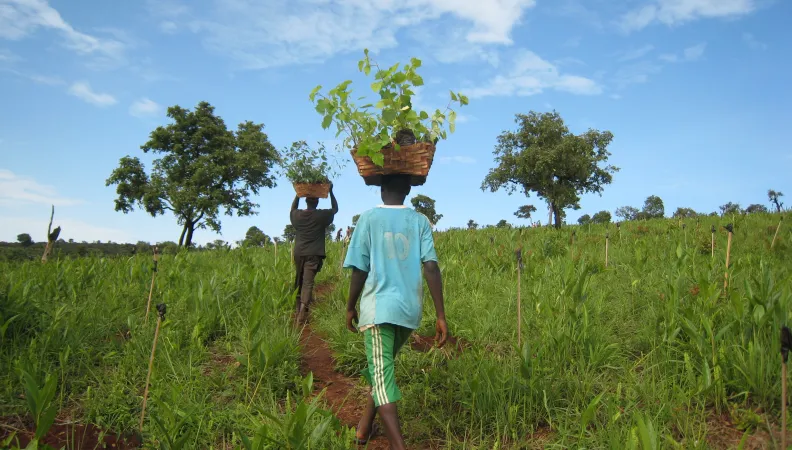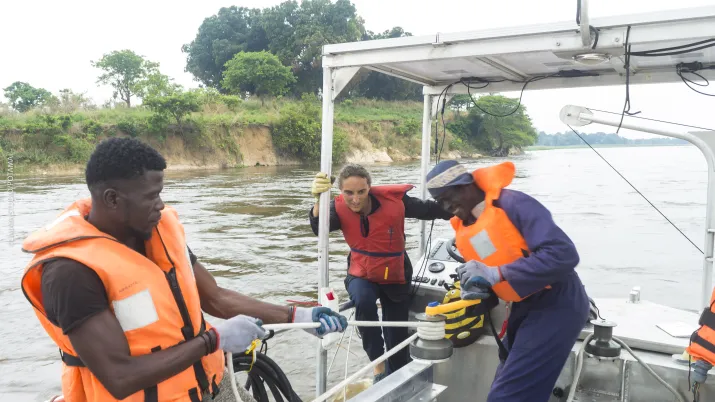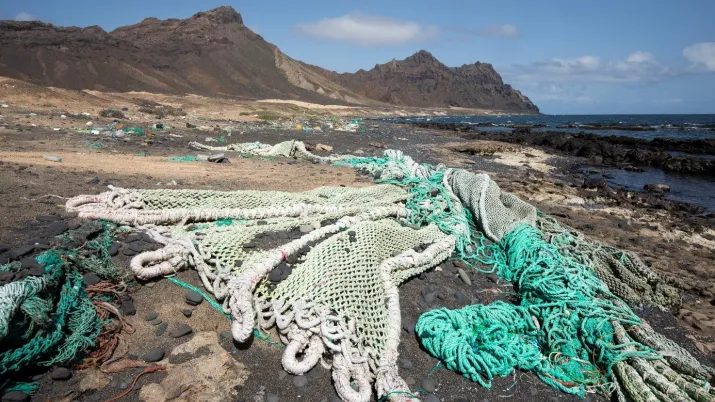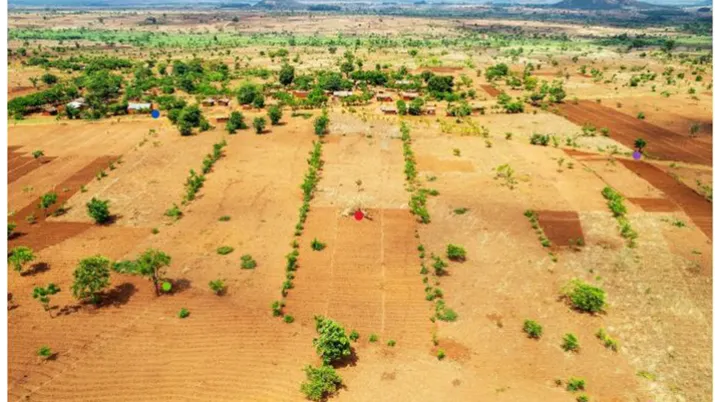Share the page
Marc Daubrey: “The FFEM must retain its targeted approach and apply it to the African continent’s new challenges.”
Published on

Marc Daubrey, the first member of the Scientific and Technical Committee (STC) to represent the African continent, joined this consultative body in January 2022. The STC guides the FFEM’s strategic directions, ensuring the relevance of our financed projects and contributing to their monitoring and evaluation. In this interview Marc Daubrey, who is also CEO of climate engineering consultancy Green Invest Africa and founder of the NGO Impactum, shares his vision for the FFEM and the role the Facility could play in relation to the major challenges facing the African continent.
You recently joined the FFEM’s Scientific and Technical Committee (STC). What’s your field of expertise? What do you see as the role of the STC?
Marc Daubrey: For some 30 years I have been deeply involved in fighting climate change, particularly in relation to deforestation and sustainable agriculture. I’m not a scientist by training. In my view, my contribution to the STC stems more from my experience in the field. I began my professional career by helping certain African countries - Côte d’Ivoire in particular and west Africa more generally - to draw up their low-carbon strategies. Today my role centres on contributing to the operational implementation of these climate and resilience strategies.
The NGO Impactum, which I founded, works on the climate-agriculture-forestry triptych. It deploys programmes combating deforestation and promoting resilience. Its approach is to make this the business of all those involved in a given region, rather than just a company, an agricultural industry or a cooperative. I previously worked with a number of investment funds, but the FFEM particularly interested me precisely because of its “regional approach” and its focus on innovation.
At Green Invest Africa we help people on the ground implement their low-carbon strategies. We’re also working on sector strategies, for example in Côte d’Ivoire’s coffee and cocoa industries which are seeking to reduce their deforestation impact.
Compared with other facilities I’ve worked with, the FFEM and this STC stand out by having a form of “advisory board” which brings together a diverse range of skills, disciplines and experience. The way this advisory body operates allows members to contribute completely freely and independently in their own area of expertise.
“It’s also edifying to be able to feed into the FFEM’s overall strategy, identity and evolution.”
Africa is a geographical priority for the FFEM. What for you are the main issues for the continent, which the FFEM could champion?
Everyone agrees that the major issues for the continent are youth employment and women’s empowerment. By focusing on these two aspects we’ll ask the right questions and ultimately make progress on what everyone really cares about: the fight against poverty.
Another key issue, sustainability, is equally essential, particularly in terms of addressing the impacts of climate change. Because, in the end, even if you have growth, infrastructure, low unemployment, etc., if people are living in an environment that’s bad for themselves and their children, then we’ll have missed something. Biodiversity, forests and agricultural land, aquatic ecosystems, the energy transition, waste management: the FFEM’s areas of expertise lie at the heart of sustainability action. So far as its work in Africa is concerned, the FFEM could probably do more in terms of targeting population groups. It should make the link between these priority targets and sustainability issues, optimising the women-young people-sustainability triptych.
The FFEM’s new strategy is currently being formulated, following extensive collaboration between the Secretariat, the STC and ministerial bodies. In your opinion, what new boundaries should the FFEM explore? What will be the main areas for innovation in the future?
I think that the issue here is to achieve a real alchemy between the target populations I mentioned earlier and the FFEM’s financing tools. The FFEM must retain its targeted approach and apply it to the African continent’s new challenges. Every aspect of financing should be more flexible, to be better adapted to initiatives from local players in African countries. The STC’s discussions are moving in that direction. But for those involved in financing at a more global level, this isn’t happening fast enough. Today, the majority of these stakeholders have not sufficiently taken on board the value and the necessity of supporting key African players. We need to devise every possible mechanism to speed up this change, whether this means setting up accelerators or incubators or introducing “fast-track” financing. As a leading player in development, a facility such as the FFEM could do this, but traditional banking would also need to change to accommodate the new needs of sustainable economy stakeholders. Globally speaking, developing countries and their stakeholders are increasing in power and maturity. New forms of cooperation must be defined to ensure greater involvement of these countries.



